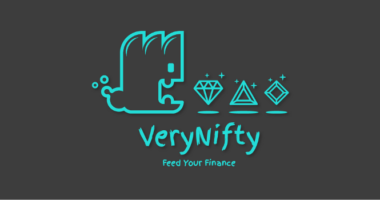As a crypto enthusiast, or someone who is constantly reading up about blockchain technology, you have probably come across the word ‘sharding’, more times than one. Sharding is best described as a method through which database is subdivided. It can also be regarded as ‘horizontal partitioning’. The sharding procedure typically encompasses segmenting a bulky database into reduced, easy to control portions, with the sole intent of increasing functionality and significantly lowering the time required for query response.
Database Sharding
To practically explain sharding, a case study is how businesses that have a large client database decide to segment their database into recent purchase. Clients who have recently purchases the same item(s) are put in the same group and added to exclusive servers. In blockchain terms, since the blockchain system can be said to be the database, and nodes can symbolize unique data servers. When sharding is used in blockchain technology, the blockchain network is essentially divided into distinct parts (these distinct parts are regarded as shards). Each distinct part holds information about a distinct set of transaction information. Furthermore, as opposed to having nodes in charge of authenticating all operations on the whole network, they would be allocated to distinct parts (shards) to authenticate unique operations.
Let’s Describe Sharding Using the Ethereum Blockchain As a Case Study
The Ethereum blockchain network comprises over eight thousand (8,000) nodes, with each node contributing a given amount of hash power to the entire Ethereum network. The contributed hash power, empowers the EVM to implement transactions and carry out distributed requests.
Currently, the Ethereum network is designed to enable a single node compute all the individual operations and sort out all individual dealings, invariably increasing the time taken to process a query response. Using sharding however, the plan is to change from the existing execution version (the linear execution) to a more effective execution model where nodes are allocated to authenticate only unique transactions, eventually allowing for several, similar transactions to be processed simultaneously.
If the blockchain is separated into unique subdomains, nodes will only have to authenticate the part of the transaction that they are allocated as opposed to computing the entire transaction every time.
How Will Sharding Help the Blockchain Network?
Scalability is a major issue facing the blockchain network. An increase in the popularity of a blockchain network necessitates the opening of new transactions, distributed applications and other procedures on the network. This will intensify the need for nodes to authenticate more transactions and might cause the blockchain network to get congested. The congestion of a blockchain network will have a negative impact on the transaction speed and invariably discourage potential investors, ultimately discouraging long-standing acceptance of the blockchain network.
However, if the blockchain network is divided into individual segments, with individual nodes allocated the duties of authenticating unique transactions, every node would not be saddled with the responsibility of sustaining the whole record to implement every transaction. With this in place, authentication of transactions can be done simultaneously invariably having a positive impact on the speed of the blockchain network. Sharding presents itself as a key to solving the problem of scalability common with blockchain networks and consequently creates a more sustainable transaction process.
Notice: Information contained herein is not and should not be construed as an offer, solicitation, or recommendation to buy or sell securities. The information has been obtained from sources we believe to be reliable; however no guarantee is made or implied with respect to its accuracy, timeliness, or completeness. Authors may own the crypto currency they discuss. The information and content are subject to change without notice. Visionary Financial and its affiliates do not provide investment, tax, legal or accounting advice. This material has been prepared for informational purposes only and is the opinion of the author, and is not intended to provide, and should not be relied on for, investment, tax, legal, accounting advice. You should consult your own investment, tax, legal and accounting advisors before engaging in any transaction. Please also visit our Privacy policy; disclaimer; and terms and condition page for further information.












